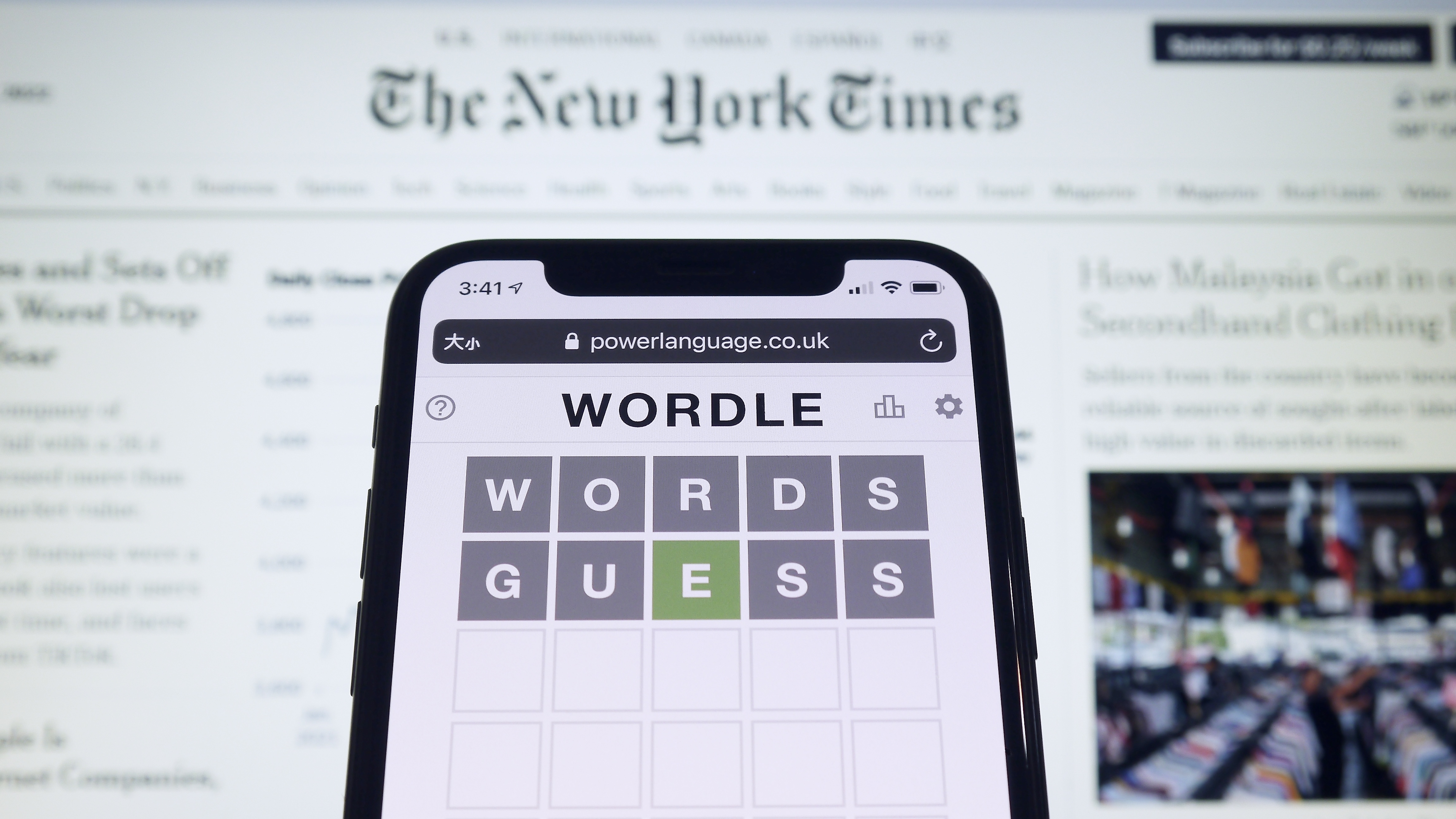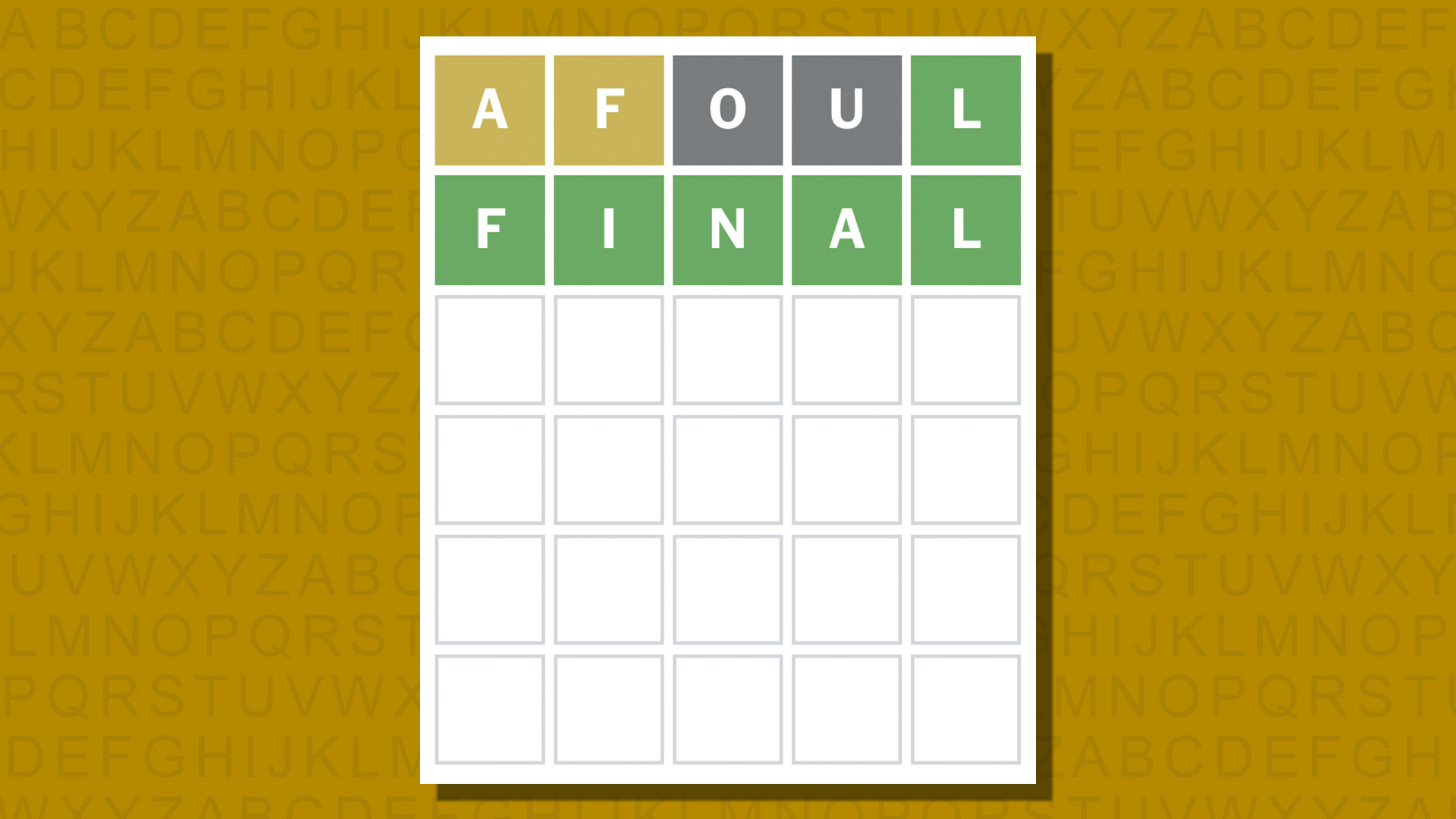Wordle has a new best start word – but I won't be using it
WordleBot, the game's AI helper tool, has changed its favorite opening word

Sign up for breaking news, reviews, opinion, top tech deals, and more.
You are now subscribed
Your newsletter sign-up was successful
Every Wordle addict knows that your choice of start word is vital. Picking the right one can be the difference between solving the daily puzzle in two guesses (joy!) or needing five or six (boo!); it could even lead to a lost streak, and nobody wants to experience that.
Well, now the official advice for what the best Wordle starting word is has changed, with WordleBot, the New York Times' dedicated AI helper tool, stating that it prefers TRACE to its previous top pick, SLATE. In hard mode, meanwhile, the 'bot's favorite word is now TROPE.
As the NYT states in a post on its Upshot site, "As always, the difference between these starter words (or, for that matter, between these words and the bot’s other favorites, CRATE, CARTE, CRANE and SLANT) is extremely small. How small? On average, the bot expects to solve a Wordle in 0.0006 fewer guesses on average when it starts with TRACE rather than SLATE."
This is not a big deal by any means, then. Both words are still very good choices to begin with, and indeed the NYT adds that if you played SLATE rather than TRACE every day for four and a half years, you'd only save one guess in total – and that's across some 1,600 Wordles.
The article also points out that anyone who starts with ADIEU – the most popular starting word – would need 74 extra turns over the course of one year. This should come as no surprise to anyone who reads my daily today's Wordle answer column, where I regularly point out that ADIEU, and its close cousin AUDIO, are not great choices. In fact, I also discussed it in my article on what I learned from achieving a 500-day Wordle streak.
The reason for the change is that the makers of WordleBot have added several new words to its lexicography (including BARRE, MOREL and MERCH) and deleted others (such as PWNED, EGADS and YEESH). But none of this affects the actual game, because WordleBot has an entirely different dictionary from Wordle itself, and doesn't know what the real answers are. I'm guessing that none of those six words are on the list.
Interesting stuff, then, but none of this will affect me – because after using the same start word for around 700 Wordles I've now switched my strategy.
Sign up for breaking news, reviews, opinion, top tech deals, and more.
A new way of playing Wordle
I started playing Wordle in December 2021 and have now completed 741 games with a current streak of 740. For almost all of that time I've used STARE as my start word. I chose it before the web was awash with reams of online analysis of the best start words, and before WordleBot existed, but chose wisely: STARE is WordleBot's 14th favorite opener, and has a skill rating of 97/99.
STARE served me well across all of those games for two reasons. Firstly, it's a good Wordle word that uses very common letters. This is obvious. S is the most common starting letter in the game, A is the most common middle letter, E is the most common at the end. All five letters are in the top 10 overall. It's a simple matter of probability.
The other aspect is that playing a consistent start word made it far easier for me to know what to do for my second guess. If I drew a blank, I would play CLOUD or COULD, because I knew from experience that they would give me the best results. If I received a green A, I would play CLING. A green E would be followed by LINGO. The net effect was that I would consistently score 3/6s even on days when the average across all players was above 4 – although as with everyone, I still struggled on the toughest Wordle days.
The downside to all this was that playing Wordle got a little… dull. December was a ridiculously easy period for the game – only two of the 31 puzzles had an average score of above 4.0 – and solving Wordle each day become straightforward. No, worse than that; it became mundane. Type in STARE, type in a second good word, solve in three. Yawn.
Goodbye STARE, hello… AFOUL?

All of this was my own fault, of course, so I decided to do something about it. From January 1 I began choosing a new start word at random, and it's completely shaken up the game for me.
The words I've begun with so far have included the good (LOUSE, UNITY), the bad (APNEA, CHAFF, BLOOM) and the ugly (POPPY). Seriously, POPPY? It only contains three distinct letters!
However, the specific word hasn't necessarily matched up with my score, because it's opened up far greater possibilities for me to shape the puzzle via good or bad choices. In recent days, the bad choices have been more apparent than the good, but I'm not complaining about that, because either way it's made it more interesting.
Of course, luck still plays a huge role. On the day that my random word was POPPY, the answer was STONY – so I already had a yellow O and a green Y to factor in, and still scored a 3/6. When I got AFOUL – not a terrible word by any means, but definitely an uncommon one – the answer was FINAL, meaning I had three of the five letters already and was able to score a two.
The main takeaway has been that my scores are now nowhere near as consistent. So far in 2024, I've had three 5s and a 6, but also two 2s and four 3s. It's become a real rollercoaster ride.
Again, this is a good thing. Going random has reinvigorated my love of Wordle, which is no easy task two years and 741 games in. So by all means follow WordleBot's lead and play TRACE each day, but you might have more fun if you just pick randomly instead.
Follow TechRadar on TikTok for news, reviews, unboxings and much more
You might also like
- Best Wordle starting words for a great first guess
- My Wordle streak just hit 500 - here's what I've learned
- What is Wordle? Rules, strategy and everything you need to know

Marc is TechRadar’s Global Editor in Chief, the latest in a long line of senior editorial roles he’s held in a career that started the week that Google launched (nice of them to mark the occasion). Prior to joining TR, he was UK Editor in Chief on Tom’s Guide, where he oversaw all gaming, streaming, audio, TV, entertainment, how-to and cameras coverage. He's also a former editor of the tech website Stuff and spent five years at the music magazine NME, where his duties mainly involved spoiling other people’s fun. He’s based in London, and has tested and written about phones, tablets, wearables, streaming boxes, smart home devices, Bluetooth speakers, headphones, games, TVs, cameras and pretty much every other type of gadget you can think of. An avid photographer, Marc likes nothing better than taking pictures of very small things (bugs, his daughters) or very big things (distant galaxies). He also enjoys live music, gaming, cycling, and beating Wordle (he authors the daily Wordle today page).